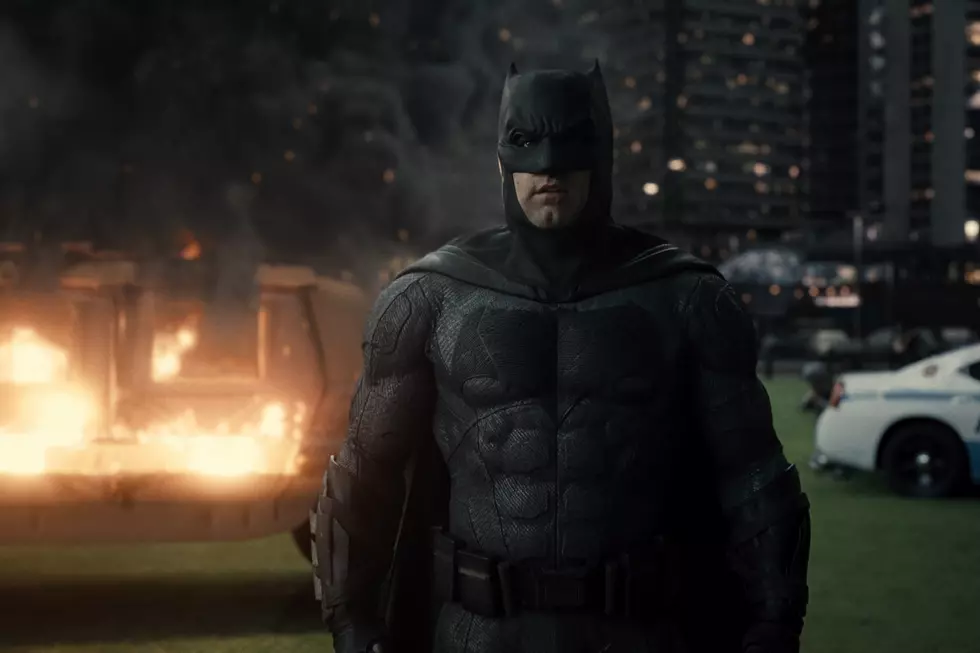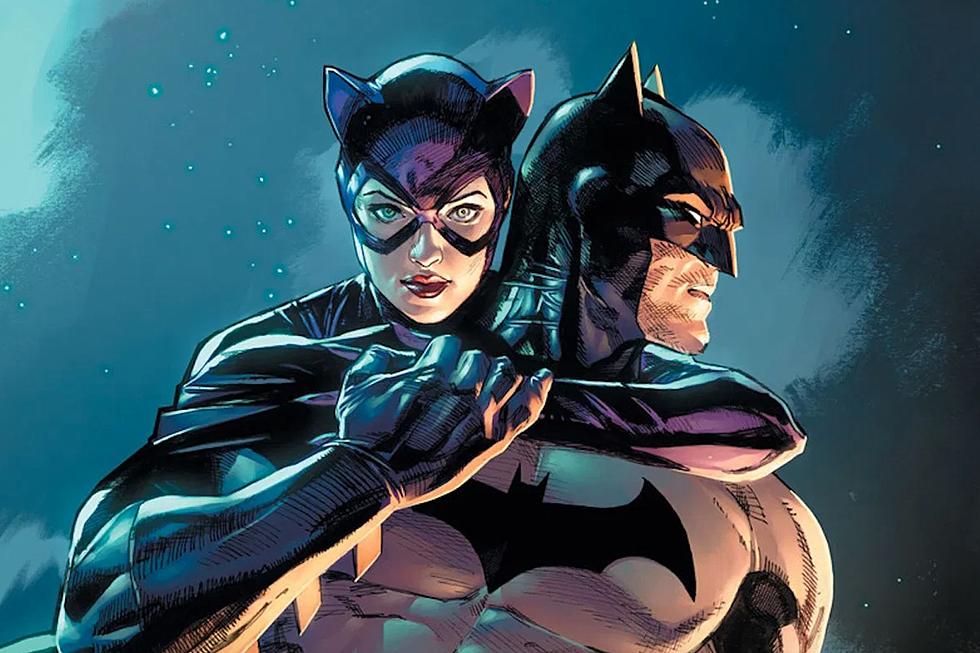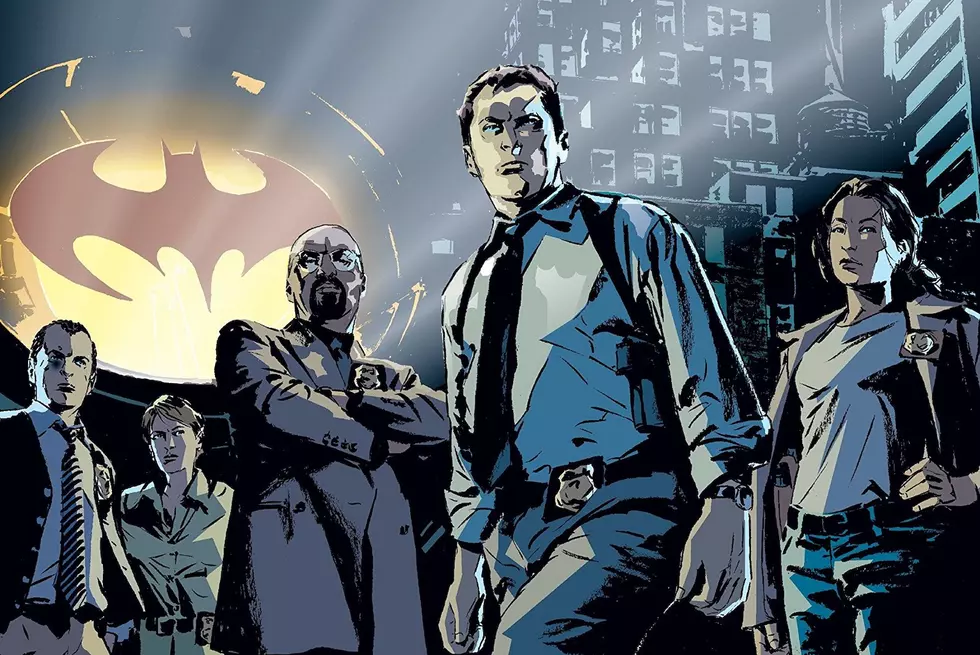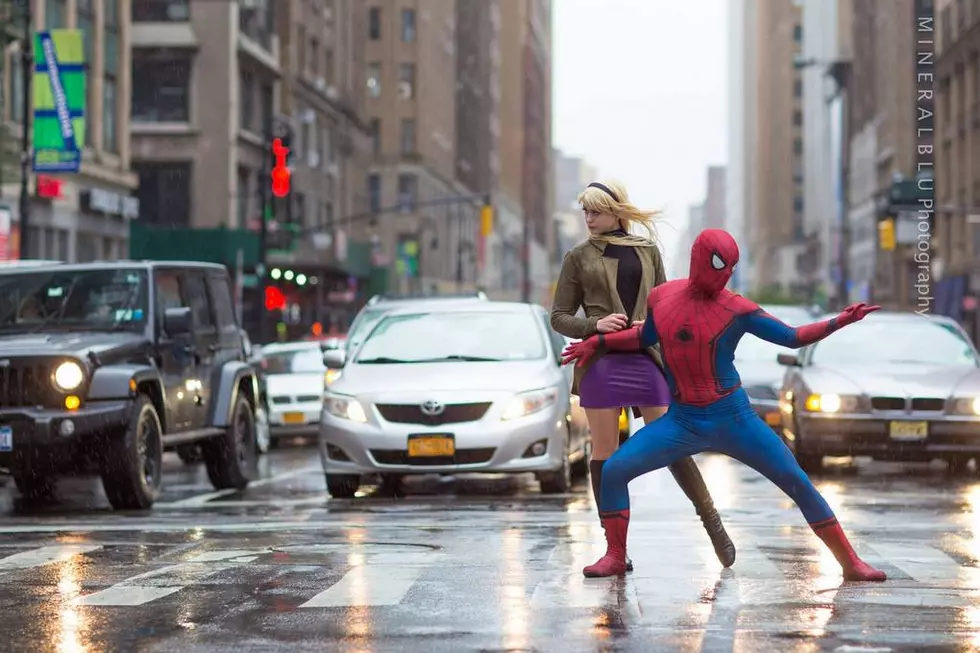
Ask Chris #302: All The Fun Of A VHS Tape In Comic Book Form
Q: Why are comic book adaptations of movies a thing? Do you think any are worth reading? -- Daniel, via email
A: You don't see them around too much these days, but when I was a kid, comic book movie adaptations --- official comic book movie adaptations --- were a pretty big deal. Or at least, that's how it seemed to me. See, when you're stuck in the back seat of a Ford Escort on a 600-mile car trip and you want to know more about this new movie that you've been reading about in Disney Adventures, and you're also living in a time before everyone carried a tiny personal computer that could show them literally every comic book, television show, and music video in the world, well, picking up a The Rocketeer: The Official Movie Adaptation off the magazine rack at a gas station was a pretty solid way to kill some time.
But then, I imagine that's the problem.
Comic book adaptations of movies have existed for as long as there have been comics, and as for why, you really have to understand their place in American mass media. Even though film has been dominant, widespread, and reasonably accessible for well over a century at this point, it's only within the past couple of decades that it's been something that you could enjoy in your own home, any time, as many times as you want. I mean, home video isn't exactly new, but I remember there being video stores that actually stocked VCRs that you could rent along with your tapes in case you didn't have one at home. While I'm getting pretty old, I'm not quite old enough that this qualifies as ancient history.
Throw in the cost of ownership, and you've got a pretty high barrier for entry. Kids these days --- which, okay, yes, is something that an ancient person says --- might have a hard time believing this, but there was a time where you had to pay $20 or $30 for a single movie. Today, you can get access to the entire Criterion Collection or, in my case, every episode of Power Rangers for a flat $10 a month, and I can assure you that that changed everything. Just ask the people who used to run Blockbuster.
Comics, on the other hand, had the opposite trajectory. While the past three decades have seen single issues moving inexorably towards the direct market and specialty shops, with the prominence of paperbacks in bookstores, the rise of webcomics, and the easy accessibility of digital comics and online subscription services serving as recent developments that pushed them back into the mainstream, there was a time when they were a mass media that was rivaled only by movies, radio, and their cousins in pulp novels. Superman's overwhelming popularity didn't just kick off a genre, it also brought the entire medium to prominence across the country. While it's always dicey to romanticize the past, it really is worth noting that those things were friggin' everywhere back then.
But there are two other factors beyond just that widespread availability that led to the rise of movie adaptations. The first is that, compared to other media, comics were pretty cheap. But the second, and by far the more important, is that comics are permanent.
According to NATO (the National Association of Theater Owners, not the more well-known organization with the same acronym), the average cost of a movie ticket in 1963 was a staggering 86 cents. Comics, on the other hand, were a quarter of that, and while it definitely doesn't take two hours to read a comic book --- even one of those Silver Age monsters with three complete stories stapled between two covers --- they had the advantage of ownership.
Even at their cheapest, movies are still experiences. Once it's over, it's over, and in the days before the rise of home video, if you wanted to have that experience again, you had to pay for it again. It's certainly not a rarity to go catch a movie a second or third time, but eventually, those 86-cent tickets are going to add up to an entire week's worth of allowance.
With comics, though, they were yours. Once you paid that 12 cents, or swapped them with a neighbor, or picked up a stripped copy (which, for those of you who never worked retail, is a comic where the cover was cut off and returned to the distributor to prove the book didn't sell, which didn't keep the contents from staying in circulation) for as little as a penny, you could read it as many times as you wanted.
Put it all together, and you have the reason for movie adaptations: If you wanted the experience of the movie again, but you wanted to keep room in your budget for hot dogs --- which, I remind you, were costing up to 15 cents --- then reading the comic book version of the story was the most economical way to do it.
The same thing applies to novels, incidentally. Along with comic book adaptations, movie novelizations were also something I was obsessed with as a child, and I vividly remember rushing through an exam in 7th grade so that I could get back to reading the novelization of Batman Forever. There are advantages to those, too. The novel allows the writers to go into far greater narrative detail than you can fit into either a comic or even the original screenplay --- I will never forget how James Luceno, writer of the novelization of Alec Baldwin's The Shadow, decided to just throw Kent Allard in there as though things weren't complicated enough in that story --- if nothing else, they're easier to fit in a back pocket
That said, comics have the distinct advantage of being a visual medium, and when you're trying to recapture the imagery that you can see on the screen at the movie theater, comics could replicate that more closely, and bring that feeling back to the reader. And if you need evidence of that fact, you need look no further than Star Wars. Alan Dean Foster's novelization (credited to George Lucas on the cover) might've been a good seller that gave the world the beautiful image of Luke Skywalker asking Obi-Wan Kenobi to explain the concept of ducks, but the comics, which blended the space opera of the film with the distinctly Marvel Comics imagery of Obi-Wan chopping up an entire bar of nameless aliens with his "light-sabre," are the project that launched a 100-issue run that's usually credited for saving the entire company.
But that brings up an interesting quirk to comic book adaptations. Up to now, I've mostly just been talking about sci-fi or superhero stories, which can transition pretty easily into the medium. The thing is, for a while there, movie adaptations weren't just limited to those genres. They'd do comics about anything.
Seriously, I have a Marvel Comics single-issue adaptation of For Your Eyes Only around here somewhere, and it's not like there was an existing James Bond series that it was part of. As far as I can tell, it's the only one they ever did, although Eclipse put out License to Kill eight years later. Just someone wanted to do an adaptation of some Roger Moore James Bond movie, and not even the one where he goes to the moon.
And that, I think, illustrates what might be the weirdest thing about movie adaptations. They're adaptations, and they need to be chopped, changed, and compressed to fit the new medium --- especially since the lead time tends to find them being produced before the final cut of the film. Every now and then, you get pieces in the comics that didn't actually make it to the movie, while other things --- occasionally important things --- that get chopped out for space.
I had a conversation about the fascinating way that these things come together last year with Tom Scioli, who went as far as describing his work on Transformers vs. GI Joe as being structured like a movie adaptation for a movie that didn't exist. In order to make it all fit, you have to cut out everything that's not strictly necessary, which --- to answer your second question --- is something that makes virtually every movie adaptation both super weird and kind of fascinating to read. For me, anyway.
As for what happened to them, well, movie adaptations just aren't that necessary anymore. If you want the experience of seeing a movie again, you really just have to wait a couple of months until it hits Netflix or iTunes or, if you really liked it, one of those archaic formats called "physical media." In one of the weirdest media reversals of all time, you're far more likely these days to find a movie that's a direct adaptation of a comic book than the reverse.
You still get one every now and then, but the last decade saw them go almost extinct. In all honesty, they seem more like vestigial curiosities than a legitimate format, and I don't think there's any better example of that than the fact that in 2009 IDW put out an adaptation of Star Trek II: The Wrath of Khan, a movie that came out in 1982. At that point, I'm pretty sure you could get that thing on video.
Ask Chris art by Erica Henderson. If you’ve got a question you’d like to see Chris tackle in a future column, just send it to @theisb on Twitter with the hashtag #AskChris.
More From ComicsAlliance









